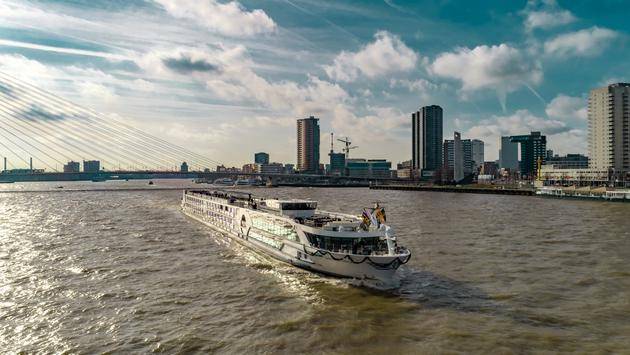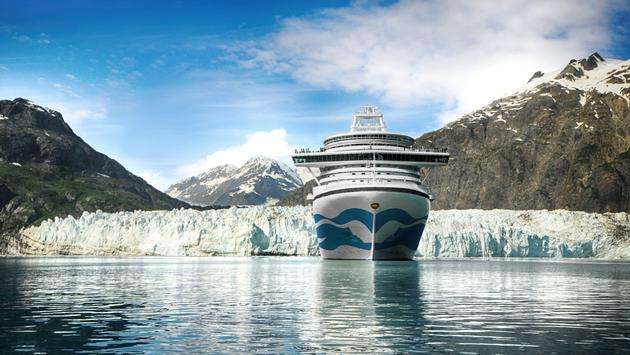June 16,2023
Planning an RV Trip: The Complete Guide
by Bin Xu
Contributing $114 billion to the U.S. economy in 2019, RVing is one of the fastest-growing trends inspiring solo travelers, families, and couples to hit the road. RV travel allows you to visit areas you might not travel to otherwise. You can drive on your own time and stay at some of the most majestic places on earth.
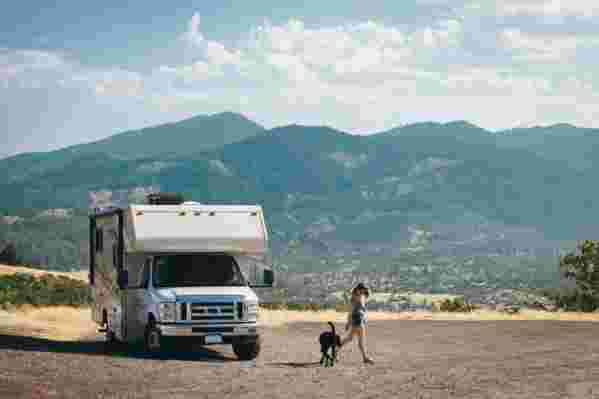
Whether you’ve planned an RV trip before or it’s your first time, you’ll learn something from our complete planning guide.
Planning Your Trip
The great thing about planning an RV trip is the endless possibilities of destinations and the flexibility of the trip; you can rent an RV just about anywhere, meaning you can fly to a closer point, or you can leave right from your own home.
When choosing routes and destinations for a first-time trip, do your research and plan to stick to the proven routes; don’t venture off the path too much, especially if you’re not used to driving a motorhome or towing a trailer. Once you’ve tackled a few easier trips, you’ll be more comfortable going off the beaten path.
National and state parks will be expensive, and the most crowded during the summer months. Try to visit these popular spots on shoulder seasons for a more enjoyable experience. Book ahead to save the most money and make sure you can secure your entry when you plan to go.
Transportation
One of the first decisions to make: will you rent or buy an RV? Depending on how often you want to RV, buying one to call your own will be the more cost-efficient option. If you’re renting, you’ll want to rent early, off-season, and get the right size for your companions to get the best deal.
Renting an RV
Renting an RV can be done at rental agencies or dealers. If this is your first time hitting the road, we recommend renting from an agency, such as Cruise America, which will help you choose the right motorhome. Since it’s your first time, chances are you won’t have a towing vehicle or want to tow a trailer; you’re not used to towing, so going with a motorhome will be more comfortable and safer for you on the road.
Here are a few things to keep in mind about renting an RV:
Prices will fluctuate based on availability and seasonality.
Motorhomes will go between $175 to $275 per night on average for an older model (10 years and older), depending on the Class you rent. Newer RVs run between $150 to $450 per night on average .
. Trailers are often the cheapest option going between $50 to $125 per night on average.
Fifth wheels go between $60 to $150 per night on average.
For trailers and fifth wheels, you’ll need to have a vehicle capable of towing safely, or you’ll need to rent a vehicle to tow.
RV websites like Outdoorsy, RVshare, and others allow you to rent RVs directly from owners. This could be a cheaper alternative depending on your plans.
Want to know more about renting a vehicle when planning your trip? Read our guide to renting an RV and make sure you’re getting the best possible deal for your trip.
Buying an RV
Buying an RV is an investment, no matter the type you decide to get. If you’ve been planning an RV trip and know it’s going to be something you do in the future, purchasing an RV will save you money long-term.
If you’re ready to buy, there are lots of things to consider; read our guide to buying an RV to get started on your next adventure.
Where to Stay
There are three primary places to stay when RVing: RV parks, campgrounds, and boondocking locations. RV parks and campgrounds, including resorts, are the easiest places to book ahead of time for your motorhome or trailer. Book early to save money and ensure you have a place to park for the duration of your trip. The longer the stay, the more you’ll save, too. RV memberships are another great way to save money on parking, but if you aren’t going to RV much, or this is a one-off trip, the investment isn’t worth it.
Boondocking, the practice of camping without any kinds of hookups or other common amenities, is another option but can be a bit trickier. Essentially, this means that you want a place to park and sleep, but you can't just do that anywhere; you'll need to do some research about places that allow overnight parking. The pros of this practice are that it's free, and you are truly flexible without needing too many amenities or having to make reservations, but it can be a little nerve-wracking the first time you do it, and you want to make sure you're staying safe.
What to Do
The possibilities of what to do when going on an RV trip are truly endless. If your destination is a large city, a National Park, or a specific attraction, that’s the primary thing you’ll plan your trip around, and from there, it’s about exploring what’s in the surrounding areas.
Many RV parks and campgrounds offer shuttles to help you visit nearby attractions. They’ll also host events and activities, especially on weekends, for you and your family to take part in. If you’re staying at an RV resort, you’ll often find golfing, spas, boating, and other activities included in your stay.
Don't focus all your planning on the destination—RVing truly is about the journey as well, allowing you to discover hidden attractions, restaurants, pit stops, and more that you can stumble upon spontaneously. Take the time to explore, venture off the path, and take in everything around you.
Keep in mind that your trailer, motorhome, or camper is also a place to do things—bring board games, watch movies, cook, and relax.
What to Bring
Like any other trip, bring what makes you comfortable. You’ll need the basics, like clothes and toiletries. If you plan on doing anything specific outdoors, you’ll need the appropriate gear to do so. Depending on the weather, you may want winter coats, rain jackets, waders, or hiking boots. What you bring will be dependent on what you plan to do on the road and at your final destination.
An RV gives you the freedom to bring things you wouldn’t for other kinds of trips, such as food and drinks and pillows, blankets, and sheets. While a hotel room will have most of what you need to spend a few nights, your RV is yours to stock and make comfortable for your needs on and off the road. Because most won’t come fully loaded with what you need, take inventory when you get it to make sure you have things like dishes, glasses, cutlery, pots and pans, toilet paper, and more—if those aren't included, plan to bring the things you'll need.
If your RV comes with a refrigerator, you’ll be able to fill it up with your favorite food to snack on and cook throughout the trip. But don’t over-buy food for the trip. You can always pick up more on the way.
Some emergency items you’ll want in your RV include:
Paper map
Compass
First aid kit
Flashlights
If you forget something, you can always stop and pick it up.
Money-Saving Tips
Without proper planning, RVing can add up quickly. Here are some tips to keep your adventure on a budget:
Rent your RV and book your parking spots well in advance, especially if traveling in summer months. The further out you book—and the longer—the more you’ll save. This goes for what you want to do when you arrive, too.
If you can travel out of season, do it. You’ll often save up to half off the entirety of your trip by doing this.
If you need to buy food, drinks, or things you left behind when you arrive at your destination, try and travel farther away from tourist traps to do so. Pit stops, gas stations, and tourist attractions will charge a lot more, especially for the “necessities.”
Plan strategically for gas stops. Several apps exist to help you save on fuel along the way. Towing a trailer or driving a motorhome can be expensive; if your ride is fueled by diesel, this could break your budget.
Don’t buy new things for your ride. Use what you have at home, including food and snacks. Also, plan how often you'll eat out during your trip.
Things to Consider
Be flexible. Something will likely go wrong—you'll get lost or move at a slower pace than you thought. Embrace these unexpected obstacles, and enjoy the “adventure” it adds to your RV trip. You never know what you might discover on the road or about yourself dealing with it.
Something will likely go wrong—you'll get lost or move at a slower pace than you thought. Embrace these unexpected obstacles, and enjoy the “adventure” it adds to your RV trip. You never know what you might discover on the road or about yourself dealing with it. RVing is not for everyone. Plan a small trip for a few days if it’s your first time hitting the road. If you’ve never shared a small space with family or friends, you may find out it's not for you. Better to take a few days to learn this than anything longer.
Plan a small trip for a few days if it’s your first time hitting the road. If you’ve never shared a small space with family or friends, you may find out it's not for you. Better to take a few days to learn this than anything longer. Have backup plans. You don’t know what the weather may bring. If you’re traveling somewhere where the weather can change at the bat of an eye, make sure to have something to fill the time. Movies, board games, and books are a great way to kill time when the weather keeps you trapped inside.
Planning an RV trip is like planning any other travel adventure. Take the time to understand where you’re going, what you’ll do there, and then plan the rest of the trip around supporting your comfort and enjoyment of what you’ll do when you arrive.
RV Dealer, For Sale, Rentals, Service in Florida
No one does RVs like Travelcamp! We are your premier RV dealership located across the Southeast with locations in Florida, Georgia, South Carolina and North Carolina. Travelcamp is your go-to place if you are looking for motorhomes for sale, own an RV and need RV-related services, or even are interested in selling your RV. Want to try before you buy? Travelcamp offers short-term and long-term trailer rentals so you can get a taste of what RV life is actually like. We offer everything from RV lifestyle tips, maintenance, parts, financing, consignment, and more! Our friendly and experienced staff enjoy the RV lifestyle firsthand and are more than passionate about providing the highest level of customer service possible. You can expect professional, fast, and sincere service to assure your expectations are surpassed!

Travelcamp is your full-service RV dealer that you can depend on to ensure you have the perfect new or used motorhome for your next vacation. Are you into adventure, extremes, and thrilling activities? Toy haulers are perfect for bringing your ATVs, letting you hit the road in comfort while bringing some extra fun for your next adventure. Travelcamp offers top national brands like the popular Intech Trailers, Jayco Travel Trailers, Entegra RV, and Keystone Raptor Fifth Wheel, providing maximum space and luxury for your RV getaways. Want something a little smaller? Check out our selection of Minnie Winnies, Jayco Pop Up Campers, or our Rockwood Mini Lites. When you come to Travelcamp, you’ll be sure to find the perfect RV for you and your family.
14 RV Travel Tips From Seasoned RVers
Facebook Twitter Pinterest LinkedIn
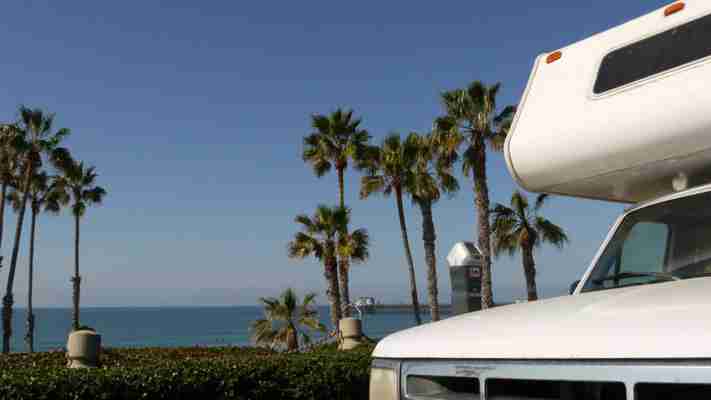
Do You Know About These RV Travel Tips From Seasoned RVers?
If you’re new to RVing, these RV travel tips will make a huge difference in your camping experience. If you’re a seasoned RVer, you may have already learned some of these things the hard way, but there may be some tips you had not yet considered.
1. Plan ahead
It is always less stressful when you have a plan and you are executing it. When we first started RVing, the only tools we had were large paper maps, a notebook, and the Woodall’s Campground Directory. These were crude and ineffective trip planning tools, but it was all we had.
Now you can use RV Trip Wizard, Campground Reviews, and the RV LIFE App with RV-Safe GPS to help you plan everything from how far you can travel comfortably in one day, to where to get gas, how to find RV camping resources that are part of your membership clubs, and what route to take to avoid unsafe roadways.
2. Shorten your travel distance to a comfortable drive
There was a time, many years ago, when we would drive our 33’ motorhome for 12 hours straight. We were weekend warriors then and were only able to cobble together a few extra days for a bit longer trip on rare occasions.
When the 4th of July fell on a Wednesday, we celebrated because we generally would expand that into a 5-day weekend. On those occasions we’d try to get as far away as possible, but that meant we were driving long distances over many consecutive hours.
Fortunately, I was younger then and I found driving the RV to be about as relaxing as driving a car, but looking back on it now, I have to admit, there were many times I should not have done that because it just wasn’t safe.
Everyone has their own threshold of driving tolerance. For some who can get on the road early, it may be 400 miles. For others, it may only be 200 miles or maybe you want to limit your day by drive time, not miles.
RV Trip Wizard lets you do just that. You can plan your drive time by distance or hours and set distance rings radiating out from your current campsite, so you know about where you’ll be at the end of any travel day. You can download the maps and info so even if you’re high in the mountains with no cell service you still have your trip information.
Regardless of what your personal preferences are, you should limit the time you spend behind the wheel on travel days.
3. Get your chores done early to get an earlier start
When you know you have a travel day coming up, get as many of your chores done ahead of time as you can. Get the laundry washed, folded and put away, the refrigerator stocked up, boil some eggs, make your sandwiches, get your truck gassed up before you hook-up to the trailer, and pick-up and stow the gear around your campsite, so on travel days you can get as early of a start as possible.
4. Watch the weather
One of our top RV travel tips is to watch the weather on your travel days. If the temperature plummets and the roads are icy or frosty, you may need to alter your travel plans.
Don’t take chances on snowy, icy, or frosty roads. It’s hard enough to drive a car in these conditions, but having the extra weight of an RV can make those conditions extremely dangerous.
Don’t be caught off-guard. Even heavy rain and wind can be dangerous when driving an RV or pulling one. Get several good weather apps and study each one to see which one most reliably predicts the weather wherever you are.
One app may say the winds will be mild while two other apps report high wind warnings. After using these apps for some time, you’ll get a sense of which ones are typically more accurate.
5. Stay south of the snow zone
By planning your travels using RV LIFE’s RV Trip Wizard, you can plan to be south of the snow zone year-round. If you’re a full-time RVer, then being a snowbird (going south in the winter and north in the summer) makes sense. You may want to spend your summers up north to enjoy the milder temperatures and lovely places to camp, but even birds know when it’s time to head south.
Don’t wait too long and get caught in snowy conditions. It makes it much harder to travel after the weather turns cold and it can be hazardous and uncomfortable to be in an RV in extremely cold weather.
6. Know when to postpone your travel plans
Driving an RV or pulling a trailer or 5th wheel in extremely windy conditions can be both stressful and dangerous. In our travels, we have seen several rigs on their side because of the wind.
Recently, a truck pulling a trailer was forced off the side of a bridge over a 200-foot canyon on I-84 in Idaho. The trailer was lying on its side near the edge but still on the bridge. The truck and its occupants were completely off the bridge and were dangling precariously with only the safety chain between the truck and trailer holding them there.
The couple and their two dogs were successfully rescued after the longest hour of their lives, as they dangled helplessly hundreds of feet above the river and wondered if the safety chain would hold. This accident was the result of the strong winds blowing across the bridge.
I’ve driven our motorhome in heavy winds and frankly it’s exhausting. It feels like you’re continually fighting to maintain lane control and every overpass and passing truck creates more challenges. If you can postpone your travel plans and let the heavy winds blow on by, I’d recommend it. At the very least, if you must drive in strong winds, think about shortening your trip, and at the very least….slow down.
7. Know your RV dimensions
The new online apps, especially the ones from RV LIFE, have taken most of the stress out of planning, navigating, and locating suitable stopping points in your journey. Now with RV-Safe GPS, your specific RV dimensions are calculated into your route planning. You get turn-by-turn real time navigational information which will get you exactly where you want to go.
If you want to experience the frustration of just using paper maps, turn all your apps off and just reference whatever paper maps you happen to have in your rig. You’ll quickly discover that paper maps don’t have all the roads, just the major roads, and figuring out what exit to take is more of a guessing game than a certainty.
I’ve done it both ways, and frankly I can’t figure out how we ever got to our destination before the creation of RV Trip Wizard and the RV LIFE App. These aren’t just handy in an RV, they are a necessity.
8. Read campground reviews
The same thing can be said for Campground Reviews. This RV LIFE website goes hand in hand with RV Trip Wizard. You can see all the campgrounds along your route near your next stopping point, which is calculated by either distance or drive time.
You can even sort these parks by your preference for memberships, amenities, or park types, etc. Then by referencing the integrated Campground Reviews, you can see what other RVers have experienced in these campgrounds. Before all this was available, we used the big Woodall’s Campground Directory as our only guide to finding a campground in an unfamiliar location.
The problem was the ads were about ½” high and 3” long. All that could be listed was the name, address, and phone number for the campground. But back then, cell phone hadn’t yet been invented, so calling a campground from the road while you were driving to that stopping point was not practical.
We would pick a likely campground based on nothing more than its name, try to find it by using our paper map, which often turned into a frustrating exchange between the navigator and the driver. When we finally arrived at a campground, we learned quickly to park the motorhome on the outside of the campground and walk into (and sometimes through) the park to see if our 33’ motorhome would fit and if there was room enough to turn around without removing the toad.
Now with Campground Reviews, you can read all about the park, amenities, interior roads, any surprises on the road as you approach the park, and so much more. With one-touch dialing on your cell phone, you can call ahead and reserve a space, and then navigate right to the park without any battles between the navigator and the driver.
9. Travel in the daylight
This one RV travel tip will eliminate so much stress on travel days and if you’ll make it a habit, you’ll also be much safer as you travel. Just make it a rule: Always drive in the daylight. It’s easier, safer, and more enjoyable.
If you need to cover more distance, then leave earlier. Driving in the daylight will greatly reduce the likelihood that you’ll hit an animal in the roadway, or encounter a drunk in your lane. If you have trouble with your rig and you’re broken down on the side of the road, it’s much safer in the daylight, and you’re more likely to find the help you need quicker during business hours.
We used to drive long into the night, and I am amazed that we did not get in wreck doing so. Limited visibility, animals in the road, tired distracted drivers, and fatigue, all add up to an accident waiting to happen.
Do yourself and your family a favor and make the commitment to drive your RV only during daylight hours. When you arrive at your destination, it’s easier to navigate within the park and it’s easier to set-up your rig if you can see.
10. Take breaks from driving
Another travel tip many seasoned RVers employ is to take breaks often during your drive time. Just a 10-minute break to stretch your legs, go to the restroom, and get a snack, will make the drive time more relaxing.
Additionally, I would advise you to eat a light lunch. Don’t skip it. The extra fuel will keep you alert, but don’t eat a large heavy lunch because the blood in your body will flow more to your stomach than your brain and that can make you a little groggy. Eat a wholesome light lunch to be as alert as possible.
11. Have a Plan B
Use RV Trip Wizard to plan your trip, but don’t be too rigid. Have a Plan B. Maybe you experience engine trouble or can’t get all the way to your desired destination before sunset. Maybe you encounter strong winds and need to tuck in somewhere to wait it out. By being flexible and having a Plan B, you will reduce your travel stress.
Everything doesn’t always work out the way you thought it would, and knowing that you’re flexible enough to adapt to whatever challenge you confront will help you enjoy your journey.
12. Keep vehicles in excellent repair
This seems obvious but when you follow RVers on Instagram or Facebook, you’re constantly reading about people who have some difficulty with their rigs, from blown-out tires, to worn-out wheel bearings, to broken hoses, and onboard fires. The more you invest in preventative maintenance, the better off you’ll be out on the highway.
Don’t ignore the basics of oil changes, brake jobs, battery replacement, and certainly get all those malfunctions that just pop up fixed as quickly as possible. The more confidence you have in your vehicles, the less stress you’ll feel on the road.
This goes for both the vehicle you drive and the vehicles you tow. Keep track of all your RV and vehicle maintenance with an online tool like Maintain My RV, which also sends timely reminders when important maintenance is due.
13. Keep distractions (pets/kids/radio) under control
Driving requires a high degree of attention, but driving an RV or pulling one requires even more attention, so you need to control the internal distractions in order to focus on your driving. Pets wandering around inside your motorhome or kids crying or fighting with one another can be very distracting. Even the radio pulls your attention from outside to inside your vehicle and all of that can diminish your perception of dangerous conditions that are developing in the traffic flow.
If you travel with pets, confine them. If you have children, give them things to keep them busy, and tune the radio to something that you can relegate to a less active level of attention.
14. Don’t drive drunk or drowsy
Some people think a little alcohol won’t affect them. Many think RV driving on pharmaceutical drugs will be okay. But that is not always true. Any amount of alcohol will alter your vision. Some prescription drugs are as bad as illegal narcotics. All of them can slow your reaction time and dull your perception. Both can render you unfit for driving.
If you need prescription drugs, can someone else in your party do the driving? Or can you drive for a short time before taking your drugs? Can your doctor prescribe a drug that is safe for travel days?
Conclusion
All these RV travel tips may seem obvious, but remember to follow these simple guidelines faithfully. If you compromise on drive time, or drive after dark on rare occasions, or let the dogs bark and bounce around while you’re driving, you may be putting yourself and everyone else in danger.
For more RV travel tips, check out this video from EnjoyTheJourney.Life:
The many RV forums online are also full of useful RV travel tips. iRV2 forums allow folks to chat with other RVers online, and get other perspectives on everything RVing, including products, destinations, RV mods, and much more. There are also RV-specific forums such as Air Forums, Jayco Owners, and Forest River Forums.
Peggy Dent is an author, writer, and full-time RVer, traveling around the US and Canada. She’s traveled more than 130,000 miles in a motorhome, over the past 20 years, and is currently writing for the RV industry. You can contact her through her website at
Leave a Reply
Please sing in to post your comment or singup if you dont have account.
Favorite articles
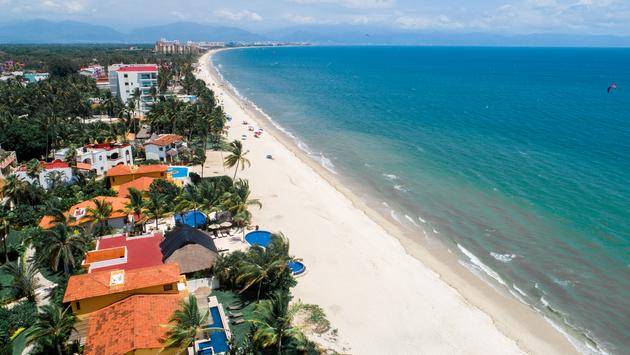
Riviera Nayarit Consolidates Air Connectivity With New Routes
January 03,2022

Looking for a Black Friday Deal? Try Summer 2021 Travel
December 30,2021
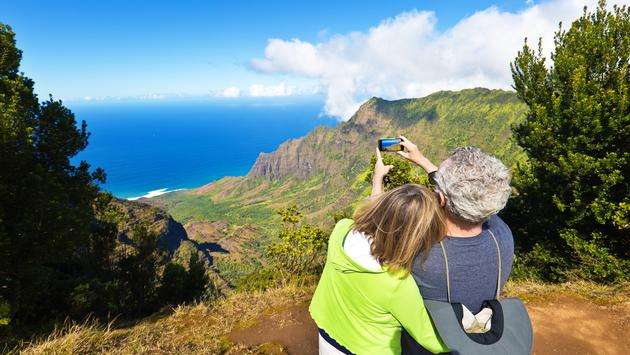
Kauai Drops Out of Hawaii’s Pre-Travel Testing Program
December 28,2021
Most popular articles

Riviera Nayarit Proves Resilience With New Hotel Openings
January 04,2022
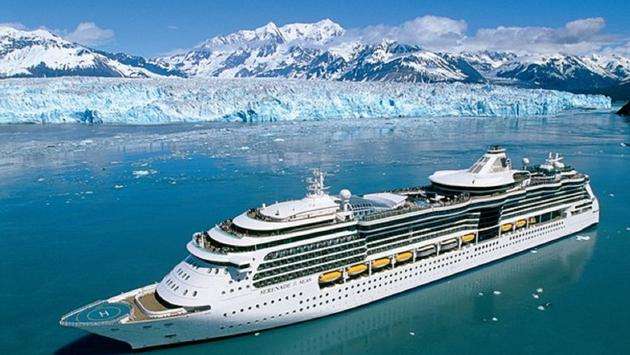
Large Cruise Ships Return to Alaska
December 29,2021

How to Score Free Disney World Theme Park Tickets in 2021
December 26,2021

Hotel Xcaret Arte To Make Its Debut in July 2021
December 25,2021
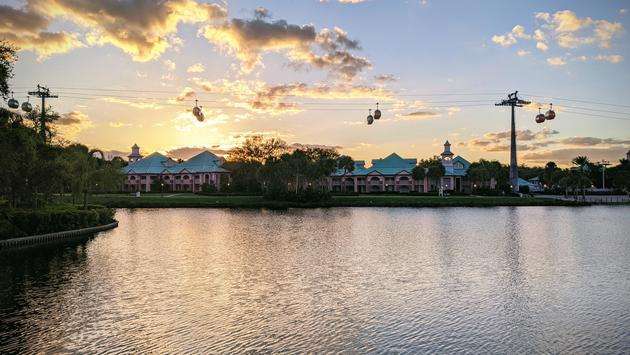

Families Can Virtually Visit Santa With Finnair
December 20,2021
Popular articles

Public Donates More Than $100K To Harassed Hotel Worker
January 02,2022
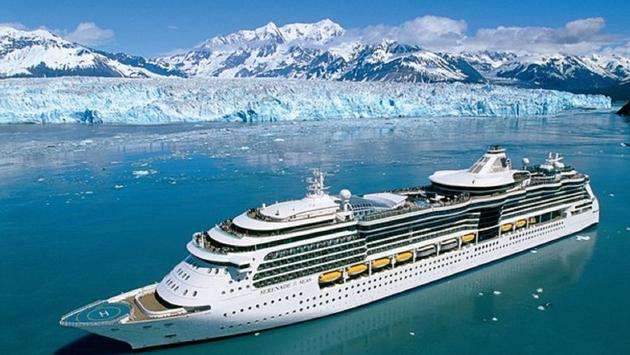
President Biden Signs Law To Restart Cruising in Alaska
January 01,2022

New Proposal Would Create 24-Hour Nightlife Zones in New York City
December 31,2021
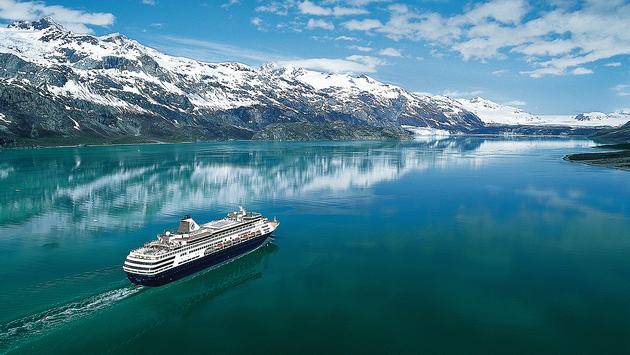
Holland America Line Launches 'BIG' Wave Season Offer
December 23,2021
Categories
Favorite articles
Riviera Nayarit Consolidates Air Connectivity With New Routes
January 03,2022
Looking for a Black Friday Deal? Try Summer 2021 Travel
December 30,2021
Kauai Drops Out of Hawaii’s Pre-Travel Testing Program
December 28,2021
Most popular articles
Riviera Nayarit Proves Resilience With New Hotel Openings
January 04,2022
Large Cruise Ships Return to Alaska
December 29,2021
How to Score Free Disney World Theme Park Tickets in 2021
December 26,2021
Hotel Xcaret Arte To Make Its Debut in July 2021
December 25,2021
Families Can Virtually Visit Santa With Finnair
December 20,2021
Popular articles
Public Donates More Than $100K To Harassed Hotel Worker
January 02,2022
President Biden Signs Law To Restart Cruising in Alaska
January 01,2022
New Proposal Would Create 24-Hour Nightlife Zones in New York City
December 31,2021
Holland America Line Launches 'BIG' Wave Season Offer
December 23,2021

